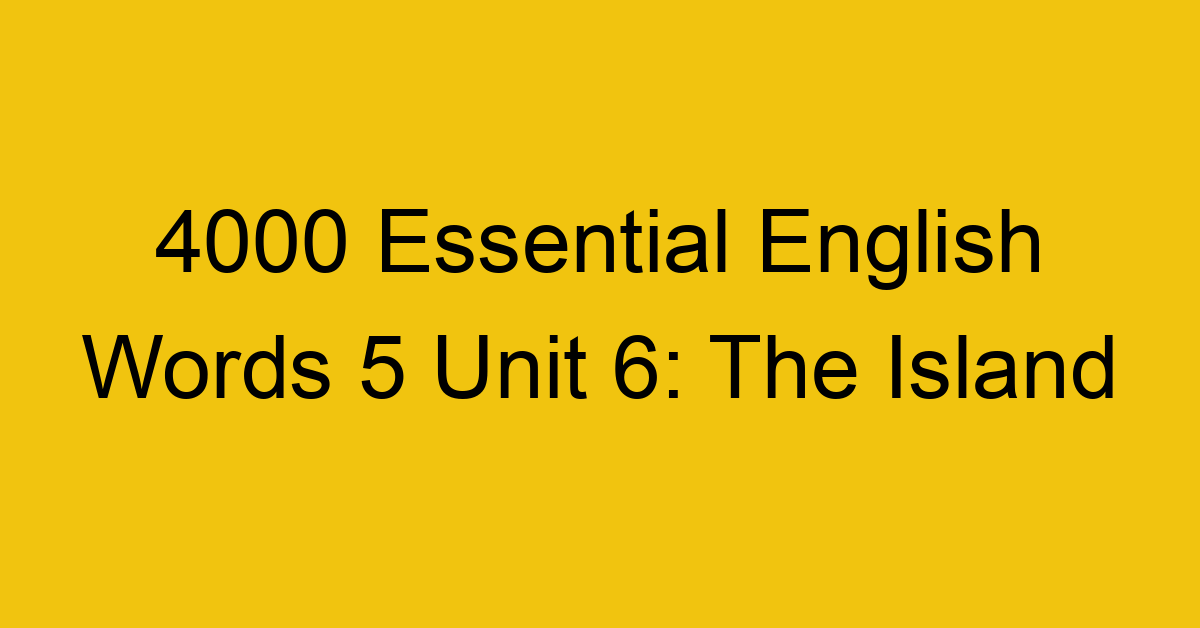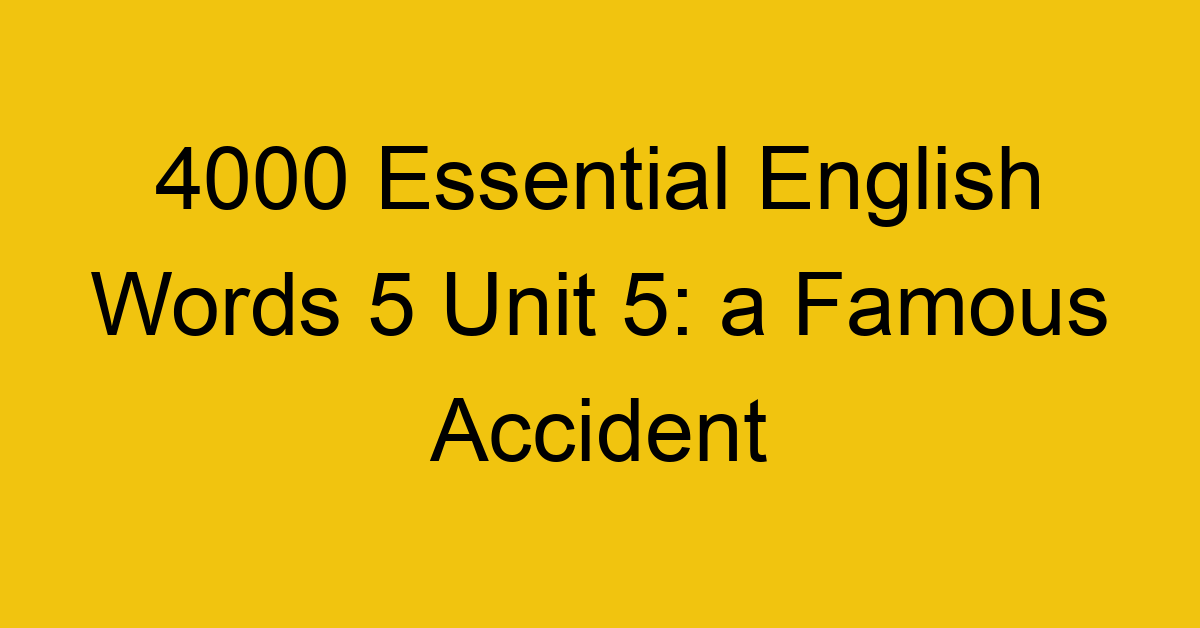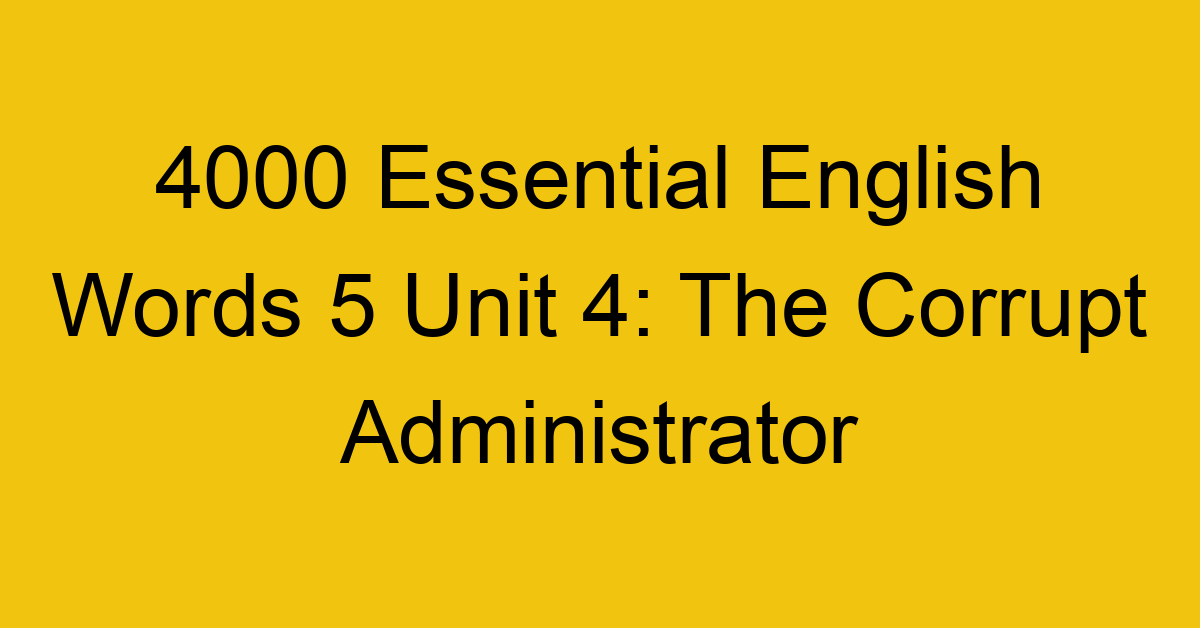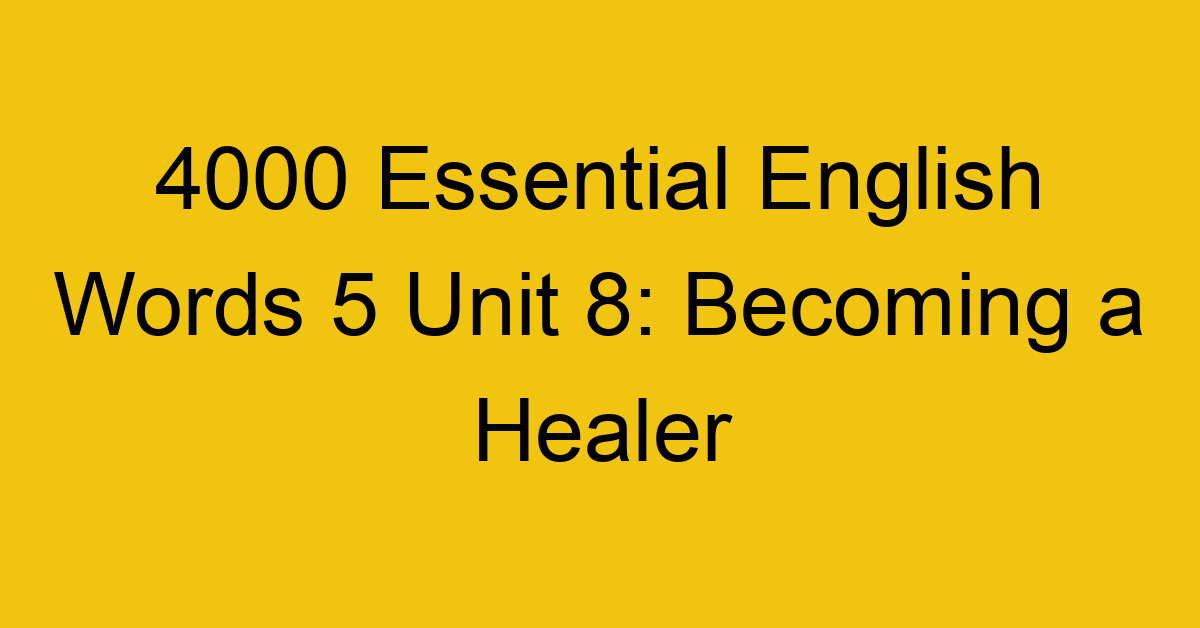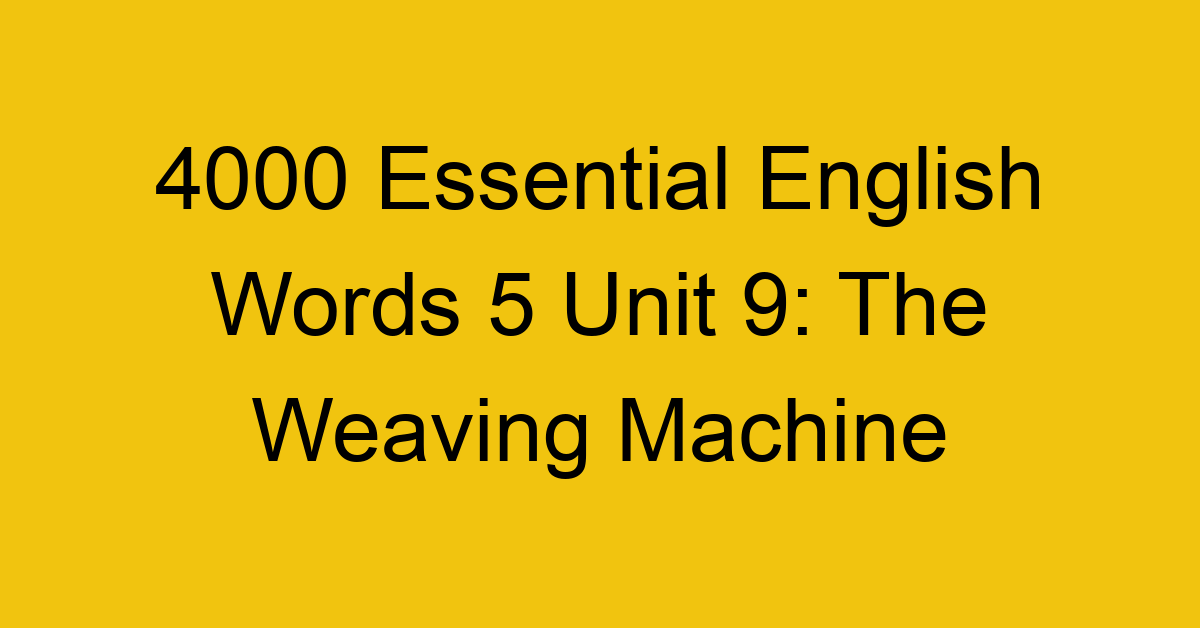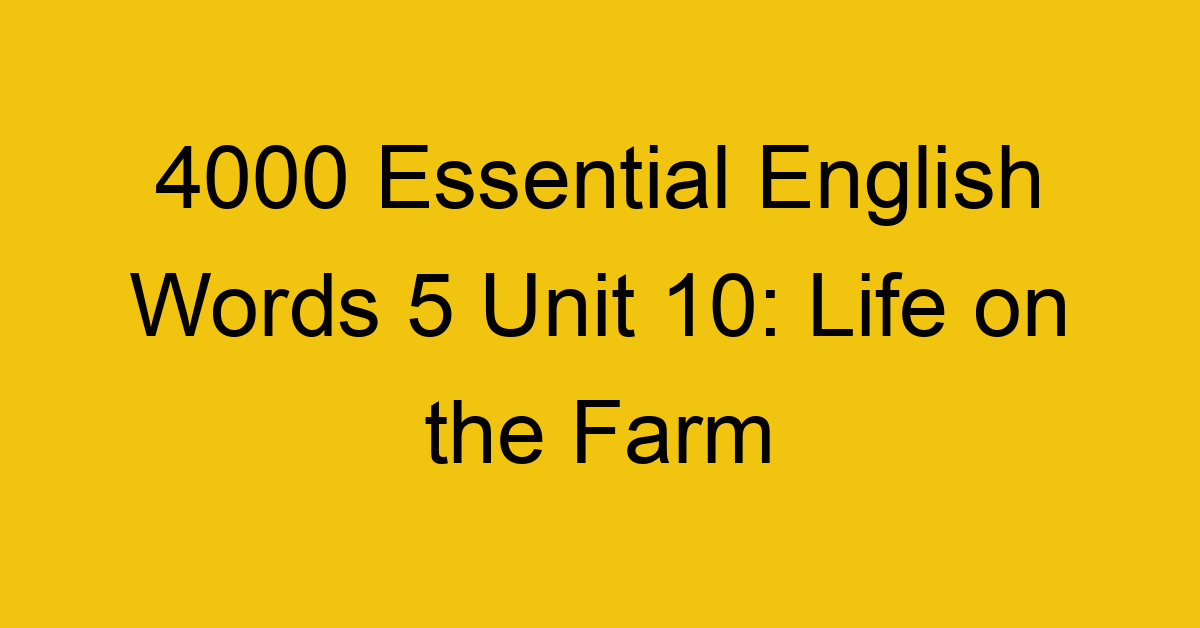4000 Essential English Words 5 Unit 7: Small World
Word List
- aquatic [əˈkwætik] adj.
If a plant or animal is aquatic, it lives or grows in water.
→ The dolphin is an aquatic mammal.
- biosphere [ˈbaiəsfiər] adj.
The biosphere is the earth’s surface and atmosphere where there are living things.
→ Birds, trees, and worms all thrive in the biosphere.
- bizarre [biˈzaːr] adj.
When something is bizarre, it is very strange.
→ My bizarre dreams make no sense to me when I am awake.
- Celsius [ˈselsiəs] n.
Celsius is a scale for measuring temperature.
→ Water freezes at zero degrees Celsius.
- coarse [kɔːrs] adj.
If something is coarse, that means it has a rough texture.
→ The coarse sweater made my skin itch.
- companion [kəmˈpænjən] n.
A companion is a person that someone spends a lot of time with.
→ I always walk to school with my companion Frank.
- digest [diˈdʒest] v.
To digest means to swallow food and pass it through the body.
→ Allow some time for food to be digested before going swimming.
- duration [djuəˈreiʃən] n.
The duration of an event is the time during which it happens.
→ The girls watched television for the duration of the evening.
- ecology [i:kɒlədʒi] n.
Ecology is the study of the environment and living things.
→ We study ecology to learn how to help improve the Earth.
- feat [fiːt] n.
A feat is an impressive or difficult achievement or action.
→ The elephant’s standing up on one leg was a feat.
- infinite [ˈinfənit] adj.
If something is infinite, it has no limit or end.
→ Many scientists believe that the universe is infinite.
- nucleus [ˈnjuːkliəs] n.
The nucleus is the central part of an atom or cell.
→ The nucleus is made up of many tiny particles.
- parasite [ˈpӕrəsait] n.
A parasite is a tiny animal or plant that attaches to another animal to get food.
→ The sick dog was covered in parasites.
- prominent [ˈprɒmənənt] adj.
When something is prominent, it is important and well-known.
→ Queen Victoria was a prominent person in history.
- repetitive [riˈpetətiv] adj.
When something is repetitive, it is repeated many times and becomes boring.
→ Working on an assembly line making cars every day is a repetitive job.
- reproductive [riːprəˈdʌktiv] adj.
If something is reproductive, it has to do with a living thing producing young.
→ The reproductive system of a plant is simple.
- temperate [ˈtempərit] adj.
When a place is temperate, it never gets too hot or cold.
→ In Peru, the weather is temperate and rarely gets too hot or cold.
- tolerance [ˈtɒlərəns] n.
Tolerance is the ability to accept something painful or unpleasant.
→ Boxers have a high tolerance for pain.
- undergo [ˈʌndərˈgou] v.
To undergo an action means to have it happen to you.
→ The cancer patient undergoes treatments twice a week.
- vulnerable [ˈvʌlnərəbəl] adj.
When someone is vulnerable, they are weak and without protection.
→ He felt very vulnerable when he was stranded in the desert.

